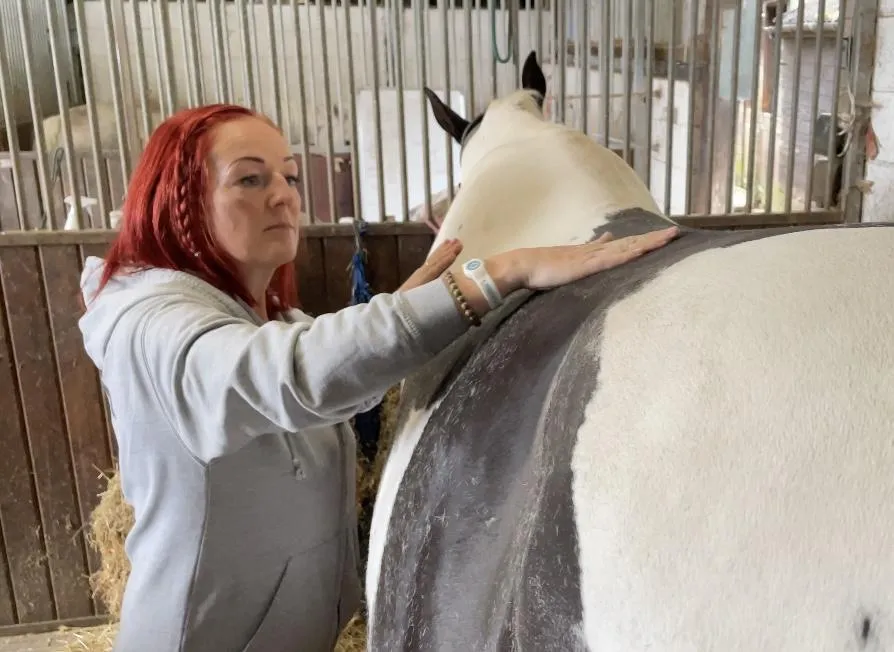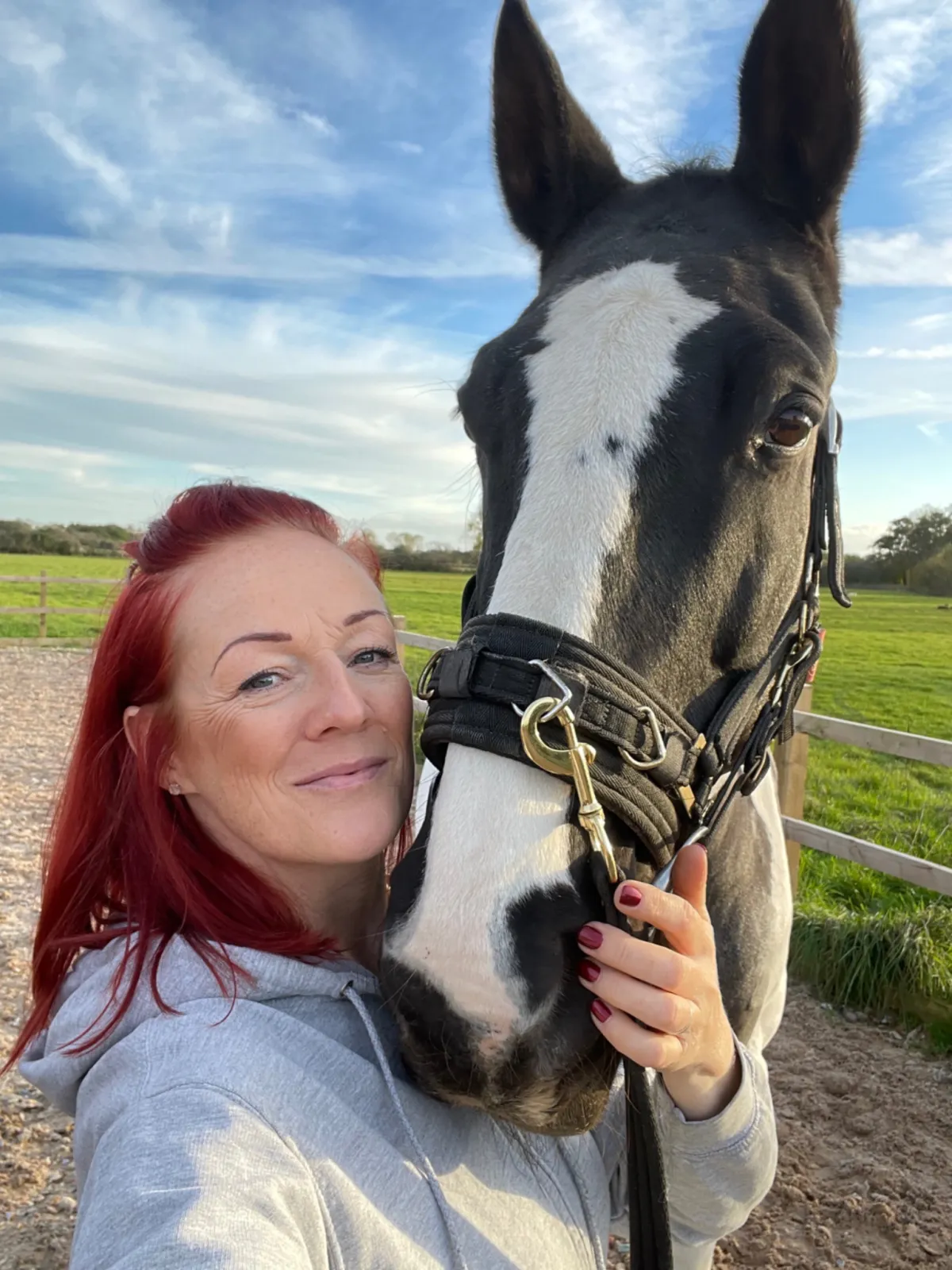
I Speak for the Horses
I Speak for the Horses: Learning to Listen Beyond Words
There’s something sacred that happens when you truly slow down with a horse.
I’ve been working professionally with horses for over 14 years — through injury, rehab, bodywork, and energetic support — but my connection to them started long before that. Horses have always been my teachers. And over time, I’ve come to understand something that can’t be learned in a textbook or training manual:
✨ Horses are always speaking. But most people have never been taught how to listen. ✨
Sometimes, when I place my hands on a horse, I feel an emotion rise through me — sadness, tension, fear. Sometimes I get a flash of an image, a past memory, or a strong sense of a story stored deep in their body. These are not just physical issues. They’re energetic imprints. They're unspoken truths waiting to be witnessed.
The more I listen, the more I realise how often our horses are trying to communicate — not with words, but with feelings, posture, body language, energy, and behaviour.
What Might Your Horse Be Trying to Tell You?
If you could truly tune in to your horse — with honesty, presence, and openness — what might they be saying?
“I’m trying, but I hurt.”
“I want to connect, but I’m scared.”
“I don’t understand what you’re asking.”
“I need a moment to settle before we begin.”
It’s rarely, if ever:
“Let’s go in circles for the sake of training.”
“I’ll override my pain because you want to ride.”
This isn’t to say you shouldn’t ride, train, or have goals. But when our human desires come before our horse’s needs — we miss the magic. And worse, we risk creating confusion, shutdown, and disconnection, and of course physical pain.
They Start With a Whisper
Here’s something I’ve witnessed again and again:
🐴 Horses rarely “act out” without reason.
Their communication almost always starts quietly — a flick of an ear, a change in breathing, tension in the eye or jaw, reluctance to be caught, or a slight shift in movement.
But when these early whispers are ignored, they get louder.
That reluctance becomes resistance. That tightness becomes tension. That quiet withdrawal can turn into what people call “bad behaviour.”
💔 I’ve worked with many horses who were shouting at full volume — not because they were “problem horses,” but because their subtle requests had gone unheard for far too long.
We must train ourselves to listen when they’re whispering. That’s the key.
When we do that — when we really start to hear them on all levels — physical, emotional, energetic — we can meet their needs before the shouting begins.
The First Step: Slow Down and Tune In
So how do we begin listening with this kind of depth?
It starts with presence, patience, and the willingness to shift our perspective.
Here are some gentle steps to help you tune into your horse’s world:
🧘♀️ 1. Switch Off the Noise
Leave your phone in the car. Step away from distractions. Turn down the mental chatter and external pressure. The yard doesn’t have to be a place of “doing.” It can be a place of simply being.
🌬️ 2. Use Your Breath to Ground Yourself
Before you touch your horse, pause and take three deep breaths. Let your feet connect to the ground. Let your breath drop into your belly. This is one of the fastest ways to shift your energy — and horses feel that shift instantly.
👀 3. Observe Without Agenda
Watch your horse’s eyes, ears, posture, and breathing. What are they really saying today? Are they alert, withdrawn, curious, tight, relaxed? Suspend the need to "do" and simply notice what is.
🖐️ 4. Let Your Hands Listen
When you touch your horse, imagine your hands are listening instead of doing. Soften your touch. Tune in to the temperature, the texture, the tension. You may be surprised by what you start to feel.
💬 5. Reframe Behaviour as Communication
Is your horse spooky? Reluctant to move forward? Resistant to being saddled? Instead of correcting, pause and ask:
“What are you trying to show me?”
Behaviour is often the horse’s last resort to be heard. What happens if you choose curiosity instead of control?
This Is Where Real Partnership Begins
When you slow down and connect with your horse through presence, breath, and energy — everything changes.
They soften.
They open.
They feel seen.
This is the space where deep healing and true partnership begin.
If this speaks to you, I invite you to explore my Breath & Grounding Exercises for Your Horse course. It’s a gentle, guided introduction to connecting with your horse on a deeper level — using your breath, energy, and presence to co-regulate and communicate.
You’ll learn simple techniques to:
Ground yourself and your horse
Release tension in both of you
Improve connection before you even begin to train
Honour your horse’s emotional and energetic state
👉 Click Here for course details
This work has transformed the way I show up for horses — and I believe it can transform your relationship, too.
Because when we learn to listen, we give our horses the greatest gift:
💛 To be heard. To be felt. To be understood.
And from there… everything becomes possible.
As always, if you wish to discuss your situation with your horse, please send me a message via the Contact Page here on my website.

